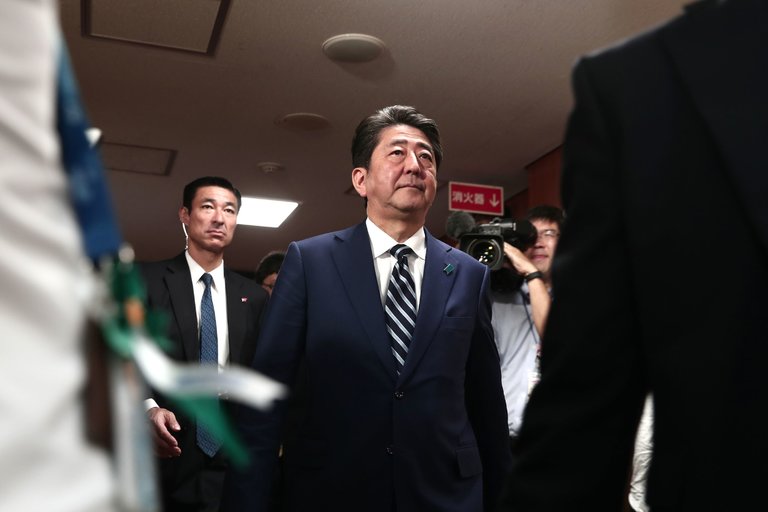Fundamental position of Yasukuni Shrine:
I will state the conclusion first: politicians, as representatives of the people, must not visit Yasukuni Shrine.
Even if done as private individuals, they should be prepared to have their judgment questioned if they choose to worship there.
The fundamental position of Yasukuni Shrine, which is a religious institution, is outlined in the Yushukan museum on the same premises.
To simplify the key points:
“The wars conducted by the Emperor’s forces were solely for self-defense, and by no means were they aggressive wars. Anyone hindering the actions of the Japanese military is considered a terrorist. We have done nothing wrong, so there is no need for us to apologize.”
While this may sound comforting to Japanese individuals who may lack awareness of historical facts and issues, countries that were actually invaded and suffered would never tolerate the existence of such a facility.
Since the Prime Minister, the highest authority in the Cabinet, frequently visits such a place, it is only natural that diplomatic relations would be strained.
Japanese politicians paying respect to war criminals:
If the German Chancellor were to place flowers on the graves of Nazi officials, their political career would undoubtedly be instantly terminated.
However, the Prime Minister of Japan seems unperturbed by bowing to the 1,068 war criminals enshrined at Yasukuni Shrine (including 14 Class-A war criminals).
It is a truly perplexing phenomenon.
Because war criminals are enshrined there, even the Emperor refrains from visiting Yasukuni Shrine.
It is hoped that Japanese politicians would follow the behavior of the Emperor.
Actually, Yasukuni Shrine is referred to as a “war shrine” by the overseas media.
The prevalence of politicians ignorant of history is a matter of international shame.
It is crucial that they uphold the obligations to follow the peace constitution.
Excuses given by politicians who visit Yasukuni Shrine annually:
The sight of politicians visiting Yasukuni Shrine repeats every year.
They are fervent in engaging in this internationally embarrassing act.
It’s quite remarkable how those who identify themselves as right-wing don’t seem to be bothered.
When questioned by reporters about their reasons for visiting the shrine, politicians often cite “expressing condolences to those who sacrificed their lives in war.”
However, they fail to realize that the means they choose to express condolences are inappropriate, simply because they are in a state of cognitive dissonance.
Some individuals also defend their actions with statements like, “Whether to visit the shrine or not is a matter of religious freedom. We don’t want interference from other countries.”
This stance is akin to an aggressor telling the victim, “I don’t care about your feelings!”
The lack of basic communication skills and empathy means that even if these individuals were to learn foreign languages, it would be meaningless—they would only end up in arguments.
The fundamental weakness in Japan’s diplomatic capabilities lies in such issues, showcasing a lack of understanding and sensitivity on the international stage.
Japanese prime ministers repeating visits to Yasukuni Shrine for self-preservation:
There are prime ministers who promise to visit Yasukuni Shrine to gain the support of the Japan Bereaved Families Association.
Former Prime Minister Junichiro Koizumi, who visited Yasukuni Shrine six times during his tenure, is a representative example.
However, it is important to note that not all bereaved families are pleased with the prime minister’s visits, as many frown upon Yasukuni Shrine’s glorification of war and lack of reflection on past actions.
Shinzo Abe, a protege of Koizumi, similarly lacks any reflection on past mistakes.
Abe, the former prime minister, openly adheres to the Yasukuni doctrine.
He refuses to acknowledge the forced recruitment of comfort women and protested against the guilty verdicts handed down to war criminals in the Tokyo Trials.
Furthermore, he insists that Japan’s wars in Asia were acts of self-defense rather than aggression.
In 1997, when he was still a member of the Diet, Abe founded the “Young Lawmakers’ League Considering Japan’s Future and History Education” and led the “Society for Creating New History Textbooks.”
The latter faced criticism for obscuring the facts of Japan’s actions in Asia during the 1930s and 1940s when it published a new textbook in 2005.
Abe, with his focus on building a nation capable of waging war, was resolutely moving towards that goal.
Conclusion:
In the future, if Japan were to engage in a war of aggression alongside its ally, the United States, politicians are likely to justify it by stating, “It is not a violation of the constitution because it is a war for self-defense.”
There is no remedy for the right-wing mentality that has not progressed an inch from its pre-war mindset.
The only effective means may be for voters to remove them through their voting actions.
朝日新聞.jpg)


.jpg)